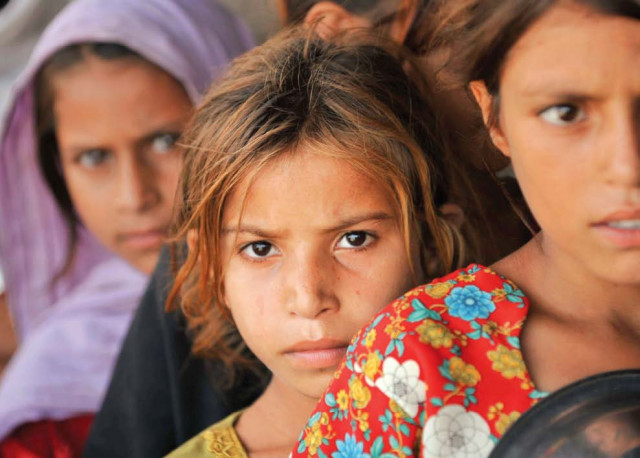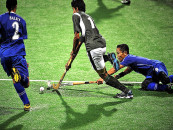Misery for ‘doomed orphans’ of the floods
Children are suffering from Pakistan’s devastating floods: lost, orphaned or stricken with diarrhoea.

At relief camps in government schools and colleges and in tent villages on the edge of towns and by roadways, children are sick from poor drinking water and the heat, or simply trying to find work.
“These are the bitterest days of my life,” said Iltaz Begum, 15, suffering from diarrhoea and stretched out in a government tent on the muddy outskirts of the northwestern town of Nowshera.
“I had to leave my blind mother behind and there’s no one to look after her as my father died two years ago.”
The tent village has no electricity. The rains have gone, but only to be replaced by heat and humidity. Flies buzz everywhere and the smell of faeces wafts through the camp.
Girls like Iltaz are just a drop in the ocean for the massive relief effort that the international community is trying to mobilise in one of the biggest ever UN aid operations.
UN Secretary General Ban Ki-moon said millions had lost their livelihoods as he visited Pakistan on Sunday and witnessed “heart wrenching” scenes of destruction. 20 million people have been hit by the floods in Pakistan.
“Many have lost families and friends. Many more are afraid their children and loved ones will not survive in these conditions,” said Ban.
Spokesman for the UN children’s fund Unicef, Sami Abdul Malik, said six million children were affected by the floods. The fund is distributing high-energy biscuits to stave off malnutrition and other diseases.
“Currently we are in a life-saving phase,” he told a news agency. “We are distributing high energy biscuits because malnutrition can lead to several other diseases.
“Children are always vulnerable. They cannot control their thirst; they will drink any type of water and may get watery diarrhoea, cholera, malaria and other diseases.”
On top of all this are the trauma and psychological problems faced by those who have been orphaned or separated from parents. In the south, people fleeing flooded homes have headed towards tent camps near the city of Sukkur. Abdul Ghani, 14, arrived from the remote village of Karampur, the eldest of seven orphaned siblings.
Both his parents died in the space of six months last year. “Life was already so difficult, but now we’re doomed. My four-year-old sister is hungry and ill, but I have no idea what to do, where to go. No one is there to help us,” he said.
Shakeel Ahmed, 15, another orphan, faces a similar problem providing better shelter and food for his three younger siblings.
“We’re too young and no one takes our problems seriously. No one listens to us. I tried to explain our problems but they shrugged me away,” he said.
Doctors at a relief camp in Nowshera technical college say most of the children are suffering from gastroenteritis, skin diseases and dehydration caused by filth and infection resulting from the destruction of sewers in the floods.
Life in the camp is their only prospect for the foreseeable future.
Published in The Express Tribune, August 17th, 2010.



















COMMENTS
Comments are moderated and generally will be posted if they are on-topic and not abusive.
For more information, please see our Comments FAQ